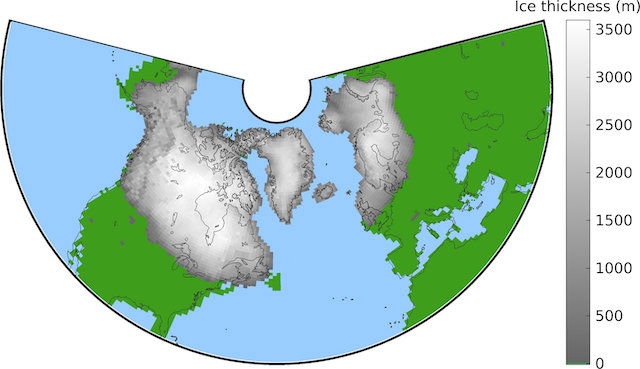
In a new study, researchers found that the CO2 greenhouse gas levels in the atmosphere currently are higher than ever before in the past 3 million years.
The finding was based on computer simulations of ice age onset in Earth’s past climate.
The research was conducted by scientists from the Potsdam Institute for Climate Impact Research.
Accord to the team, the global temperatures have never exceeded preindustrial levels by more than 2 degrees C.
But with current climate policy inaction, the temperature would exceed the 2 degrees limit already in the next 50 years.
In their computer simulation, the team used ocean floor sediment data of climate evolution over this period of time.
The computational modeling is based on astronomical and geological data and algorithms representing the physics and chemistry of our planet.
They found that the ice age onset was mainly triggered by a decrease of CO2 levels. Previously, the role of CO2 changes in shaping the glacial cycles was not clear.
The results showed that changes in CO2 levels were the main driver of the ice ages, together with variations of how the Earth’s orbits around the sun.
The team compared the results with the hard data from the deep sea, and the data prove to be in good agreement.
Moreover, the team found that the increase in greenhouse gases due to the burning of fossil fuels has fundamentally changed our planet.
The finding suggests that humans are pushing the home planet beyond any climatic conditions experienced during the entire current geological period.
The modern climate change is really big even by standards of Earth history.
The team suggests that understanding the Earth’s past and its natural climate variability is important to find possible future pathways of humanity.
The lead author of the study is Matteo Willeit of the Potsdam Institute for Climate Impact Research.
The study is published in Science Advances.
Copyright © 2019 Knowridge Science Report. All rights reserved.



